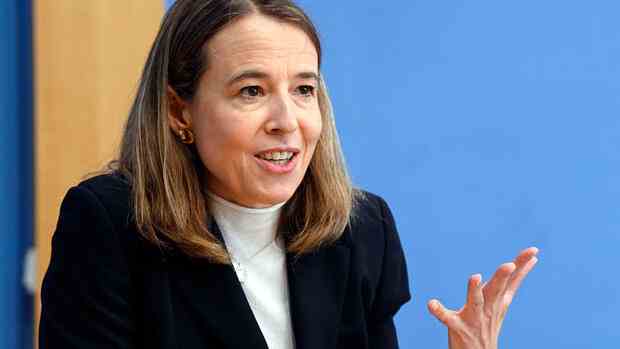Frankfurt, Berlin In her own words, Ulrike Malmendier is “greatly worried” about the high inflation in Germany. “The crisis is not over yet, core inflation is still too high,” said the economist of the “Welt am Sonntag” according to a preliminary report. She called on the federal government to tailor its crisis aid for the population more precisely. “Reliefs are not bad in principle, they just have to be targeted and not distributed with a watering can. Otherwise they will in turn boost prices.”
The professor, who teaches at the University of California in Berkeley, criticized that the tank discount for everyone was “just not accurate”. “We should define exactly which households we want to reach with which measure.” The German approach means that every crisis – whether Covid or high energy prices – is followed by a large spending program. “The advantage is the clear signal of ‘We can do it,'” says Malmendier. “At the same time, we run the risk of squandering inaccurately too much money. After all, we also want to be prepared for the next crisis.”
As a concrete improvement, the economist, who has been a member of the German Council of Economic Experts since last year, called for “better data” in Germany. For fear of a transparent person, the Germans are sometimes too careful to link the data from different authorities.
“We could link government relief directly to income or existing liquid assets,” said Malmendier. “These data are available from the Ministry of Finance, but they are subject to tax secrecy. Why not get permission from those interested in aid to access it?”
Another example is the wage-price spiral. “Even we experts cannot currently say exactly whether they exist.” There is simply no timely industry and company-specific data. “That can no longer be the case in the 21st century,” says Malmendier.
Further measures by the ECB
Deutsche Bank boss Christian Sewing also sees the high inflation as a problem and considers further interest rate hikes to be “absolutely” necessary in the fight against the high rate of inflation. “The inflationary risks are still great. Energy costs can easily pick up again, and China’s opening up can also give prices a temporary boost,” Sewing told the newspaper.
At the beginning of February, the European Central Bank (ECB) raised interest rates in the euro area for the fifth time in a row and announced a further increase of 0.5 percentage points for the March 16 meeting. The key interest rate in the euro area is now 3.0 percent. The deposit rate that commercial banks receive when they park money at the ECB is 2.5 percent.
Higher interest rates make loans more expensive. This can slow down demand and thus counteract high inflation rates. At the same time, higher interest rates on loans can lead to investments being postponed and thus economic growth being weaker.
Rising interest rates are also a burden for highly indebted euro countries such as Italy. “The consequences of persistently high inflation are far more serious than higher financing costs for some countries,” Sewing said. “Of course we have to keep an eye on that, but a high level of debt must not prevent the ECB from acting consistently.”
The ECB is aiming for price stability in the euro area in the medium term with an inflation rate of two percent. This target has been a long way off for months. Although inflation slowed again in January, consumer prices in the currency area, which now has 20 countries, were 8.5 percent above the level of the same month last year.
Higher inflation rates reduce the purchasing power of consumers because they can then afford less for one euro. Sharp increases in energy prices, which are a key driver of inflation, are also a burden for companies.
If inflation stays high, private consumption will “slump sooner or later,” warned Sewing, who is also president of the Association of German Banks (BdB). “I currently see this as the greatest danger for the German economy. But I am optimistic that we can avoid this scenario.”
More: The renowned economist Ulrike Malmendier talks about the need for longer nuclear power plant lifetimes, the reputation of Chancellor Scholz and the dangerous economic unknown: Covid in China.
